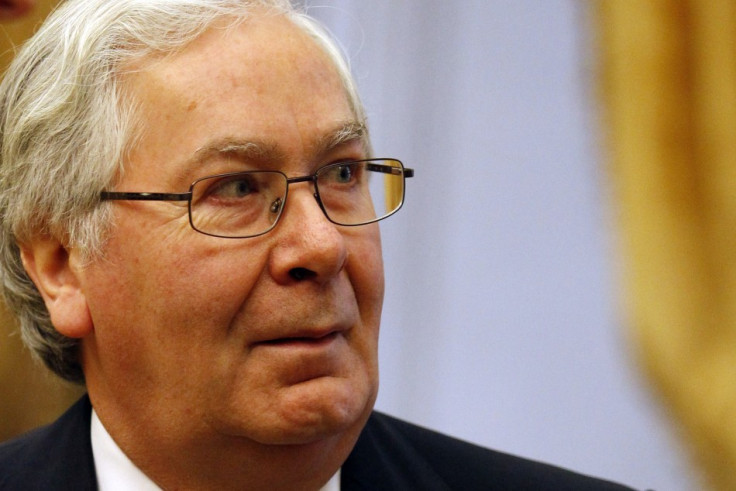Sterling Dips as Economy Shrinks Faster than Expected in Final Months of 2011

The pound fell to a two-week low against the euro Wednesday and government bonds rose following reports that the economy shrank more than expected in the final months of last year.
Britain's economy contracted at an even faster rate than previously thought in the final quarter of 2011, as the Office for National Statistics (ONS) revises its figures down.
That the figure is revised to a worse position further fuels fears that the UK is in a double-dip recession, as the governor of the Bank of England warns that the country is a long way from a full recovery.
The UK's GDP contracted by 0.3 percent in Q4 2011 from the previous three-month period. That's down from the original 0.2 percent reading.
On an annual basis, growth was 0.5 percent in the quarter, bringing the full-year figure to +0.7 percent.
The euro traded at a 14-day high of 83.95 pence against the pound, while Gilt futures rose five ticks immediately following the figures to trade at 113.77
Economists were recently predicting that Britain has narrowly avoided a second consecutive quarterly GDP contraction - the technical definition of recession - and the government's fiscal watchdog, the Office for Budget Responsibility, has revised up its UK growth forecasts for 2012, from 0.7 to 0.8 percent.
Bank of England's King Taking QE decisions 'Month by Month'
The Bank of England's governor Sir Mervyn King insisted to peers on a parliamentary committee that Britain will get back to pre-crisis annual growth figures, which were around the three percent mark.
"I see no economic reason why we cannot in the long run go back to the sort of growth rates we had before," King told the House of Lords economic affairs committee on 27 March.
"Once we come through this crisis we will be able to get back to that sort of period again - but it will take some time."
King was not drawn on the potential need for more monetary stimulus by the central bank in its quantitative easing (QE) programme, known as the "asset purchase facility".
This sees the Bank buying up high quality assets, like gilts, in order to improve liquidity in the markets.
It stands at £325bn after being expanded by £50bn in February and £75bn in October and is one of the only possible routes to growth, with the government committed to reining in public spending as it attempts to reduce its budget deficit.
"We are prepared to change our minds each and every month. If we were to do more, it would be in the form of conventional gilt purchases," King told the peers.
The Bank of England feels it has some room to move in expanding QE because inflation is set to fall sharply across 2012, from its peak of 5.2 percent in September to below the government's two percent target by the end of the year.
UK inflation for February was 3.4 percent.
© Copyright IBTimes 2025. All rights reserved.






















